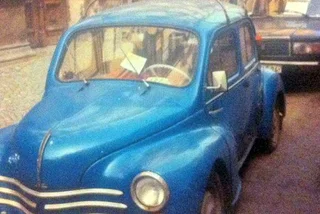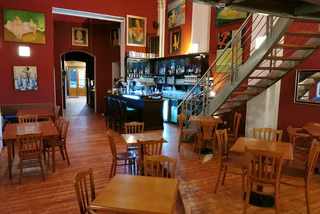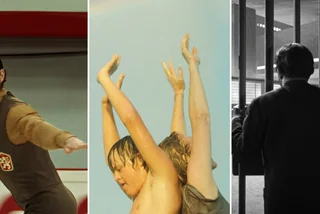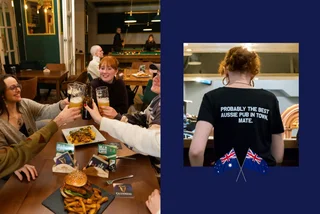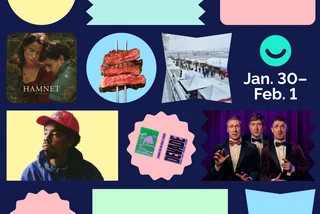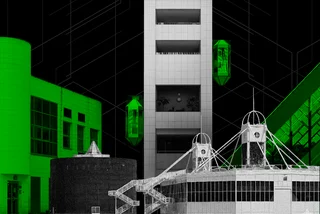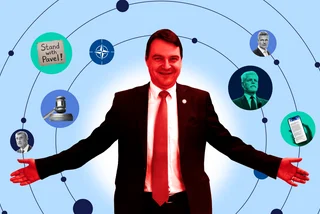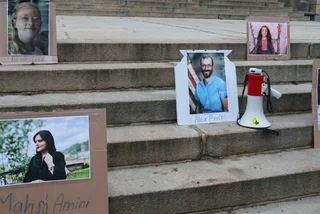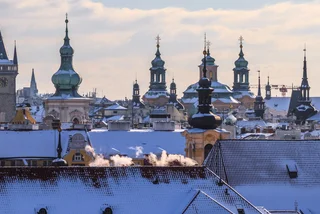Journalist Mark Baker spent the first half of his career covering business and politics behind the Iron Curtain. Following the 1989 Velvet Revolution, he joined the staff of The Prague Post, went on to co-author the first edition of Fodor's Czechoslovakia, and eventually opened Prague's first English-language bookstore.
Despite an impressive career that includes entertaining brushes with Vacláv Klaus and Allen Ginsberg, Baker's experiences as part of the expat invasion of the ‘90s will be relatable to anyone who has ever called Prague home. The author collects these stories in his new book Time of Change (Čas proměn, Albatros, 2021).
We spoke to Baker on the current regime, the comrades of yesteryear, and what it was like to be among the first wave of expatriates to discover the joys and pains of living in the Czech capital as a foreigner.
This interview has been edited for length and clarity.
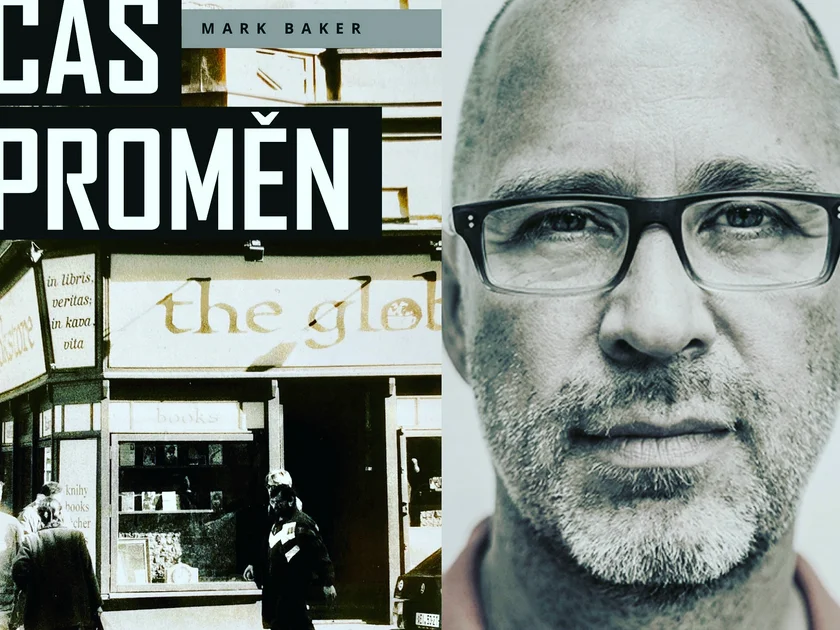
Many of our readers are new to Prague (and decades younger than us). Give them some context about the time the book is set in. What was happening and how were you a part of it?
The book is divided essentially into two parts: the first part runs from the mid-1980s up until 1989, and the second part from the early 90s up to 1994. This 10-year span, from about 1984 to 1994, is the ‘time of change’ title of the book alludes to. In the first part of the book, I work as a reporter for a small publishing outfit in Vienna and cover communist Czechoslovakia. In the second part of the book, I move to Prague and (unwittingly) become part of the expat wave that came to the country in the years after the Velvet Revolution.
What initially attracted you, as an American midwesterner, to the region?
Like many American kids, probably, I had very little interest in what was happening outside of the United States. That changed when I went to college and enrolled in our college’s study-abroad program in Luxembourg. I took a road trip with some friends that year through the Eastern bloc to Bulgaria and the Black Sea and that helped to open my eyes.
Development Officer

Sales Lead: High-Performance Computing & AI

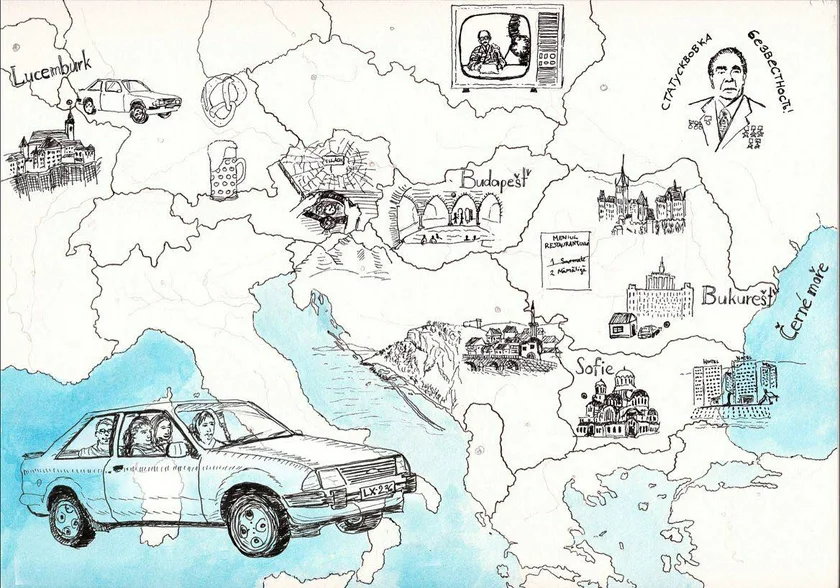
In the book, you talk about novels of Milan Kundera sparking that attraction. What do you consider essential reading/viewing for anyone who wants to better understand Czech culture?
As a grad student at Columbia in the 1980s, I took a course on Central European books and film, and that’s probably the reason I ended up staying in Central Europe in the first place. I think many of those books and movies from the old syllabus are still relevant today for understanding something about the culture. Any early book by Kundera — The Joke, Laughable Loves, Book of Laughter and Forgetting — is still worthwhile, as are the early short story collections by Ivan Klíma.
Also, the black and white Czech New Wave films of the 1960s remain relevant. My favorite is still Miloš Forman’s “Loves of a Blonde,” but there are many others. One Czech film that captures the bleakness of Prague in the late 1980s is “Bony a Klid.” It’s by no means a perfect film, but it portrays the seediness that underscored life here in the late ‘80s better than any film I know.
Your book spans the fall of the Berlin Wall, and the subsequent Velvet Revolution; what were some of the key moments during which you felt the tremendous weight of that chapter of history?
There were many such moments. The book technically begins in 1982, a couple of months after the Polish government declared Martial Law and banned the Solidarity trade union. It was one of the coldest years of the Cold War and the threat of conflict was, or at least felt, real.
I devoted two of the book’s chapters to the year 1990, which I consider being just as important as the year that came before. So many problems had to be solved that year, and the success of the anti-communist revolutions was at that time by no means guaranteed.
One of the scariest moments of the book comes in August 1991, with the short-lived coup attempt against Gorbachev in the Soviet Union. For a few short days, it really felt as if all of the progress of the previous two years could be rolled back in an instant.
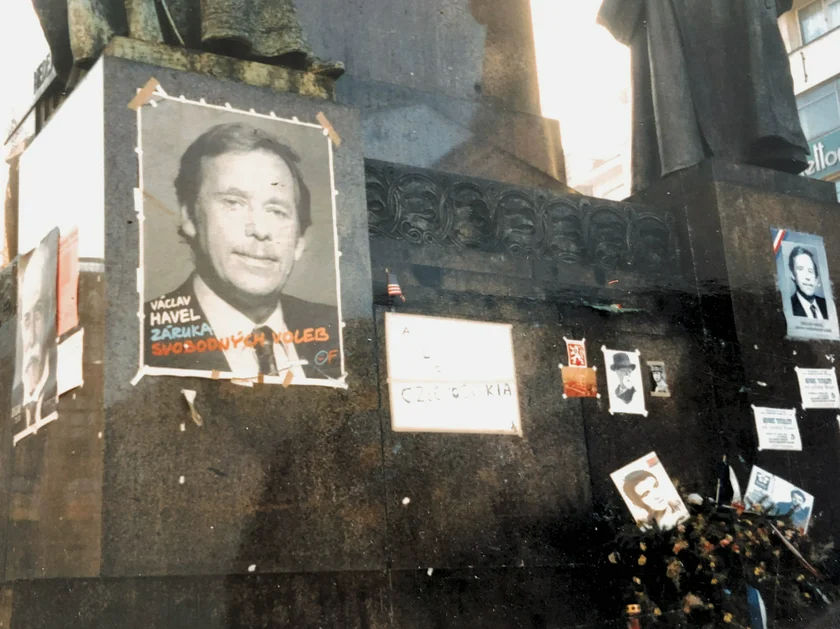
Much of the book covers an era, as you write, that was witnessing a shift from "Soviet-style communism to capitalism." In hindsight was that shift successful?
Oh yes, the shift was definitely successful. The problems that we have today (Covid aside) are relatively small, generally speaking, compared to the problems people in Central and Eastern Europe faced during the Cold War. Trying to identify the significance of the 1989 changes and place them in some historical perspective was the main aim and challenge of the book.
I came up with this formulation in the book’s epilogue and I think it’s valid: When we think about the anti-communist revolutions of 1989, we tend to visualize them in our minds. By this, I mean we think about Havel standing on a balcony or thousands of people protesting in Wenceslas Square.
Journalist Mark Baker on the Velvet Revolution"The real revolution was the change that took place in people’s own minds. Suddenly, ordinary people were once again responsible for their lives and societies."
But this in fact was not the real revolution. The real revolution was the change that took place in people’s own minds. Suddenly, ordinary people were once again responsible for their lives and societies. This fundamental reality remains the same — even if some of the political developments in the decades since 1989 have not been all that great.
In this heightened atmosphere of opening borders and falling walls, how accepting were Czechs toward foreigners like yourself? Has that level of acceptance changed or otherwise evolved?
In the years immediately after the Velvet Revolution, my impression is that many Czechs (and Slovaks) openly welcomed the influx of young foreigners to their country. Of course, there were cultural differences that had to be overcome, but the general attitude was that the presence of foreigners in the country somehow guaranteed that the democratic changes would last.
The attitude toward foreigners soured in the 2000s, first after the 9/11 attacks, when some people began to see Islam as an enemy faith. The Syrian Civil War and the influx of refugees to Europe starting in 2014 accelerated this trend and paved the way for strong anti-immigrant political parties, not just in the Czech Republic but all across Central and Eastern Europe.
Another milestone in your career was joining the staff of the Czech Republic's first English-language newspaper, The Prague Post, in 1991. Do you miss being a reporter?
For the most part no. I used to be passionately interested in politics, but I started to check out of local politics in the early 2010s, amid the growth of ‘ANO’ and populist, anti-immigrant parties. The public debate had become so dumbed-down and toxic, it started to feel like a form of self-care not to pay any attention to it.
The current presidential health cover-up must be giving you some serious flashbacks.
Czech politics never ceases to surprise. A skilled fiction writer is clearly working behind the scenes somewhere. The ultra-close election result, ANO’s loss, and the subsequent hospitalization of the president feel like just the newest wrinkles in a decades-long TV series.
If this were another, earlier era, teams of Western “Kremlinologists” would be pouring over reports coming out of the hospital looking for evidence the president was poisoned or sidelined or whatever. The fact that most people these days simply take the events at face value shows that we must be making progress somehow.
Sadly, you say in the book that the Post's archive has not been yet digitized.
The occasion of the 30th anniversary has spurred efforts to preserve the Post’s archives on the web in a format that would be easily searchable. As we speak, the first batch of the oldest editions of the paper are being scanned. I have no idea when this project will be finished, but readers can follow the progress on the website www.praguepost.org.
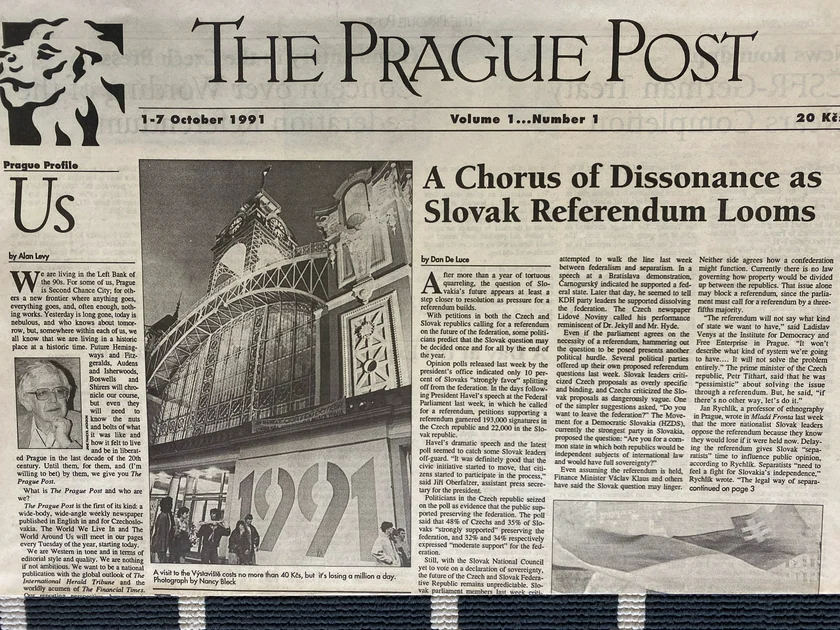
The final chapter of your book deals with your experience of opening The Globe Bookstore. You were one of the original owners of what has become an expat institution.
I was one of the original founders of The Globe and I chose to end my book there. It was a kind of culmination of the changes of the early ‘90s, and I moved away from Prague in 1994, shortly after we opened the store, so it made sense as a last chapter. In the pre-internet age, The Globe served as a place where the new expat arrivals could meet up and exchange contacts.
Our bulletin board was a useful forum for finding apartments or jobs. In a bigger sense, though, the Globe for a time served as a kind of physical space for cultural exchanges. When you think about the revolutions of 1989, they were (quite literally) about breaking down walls so that people could come back together.
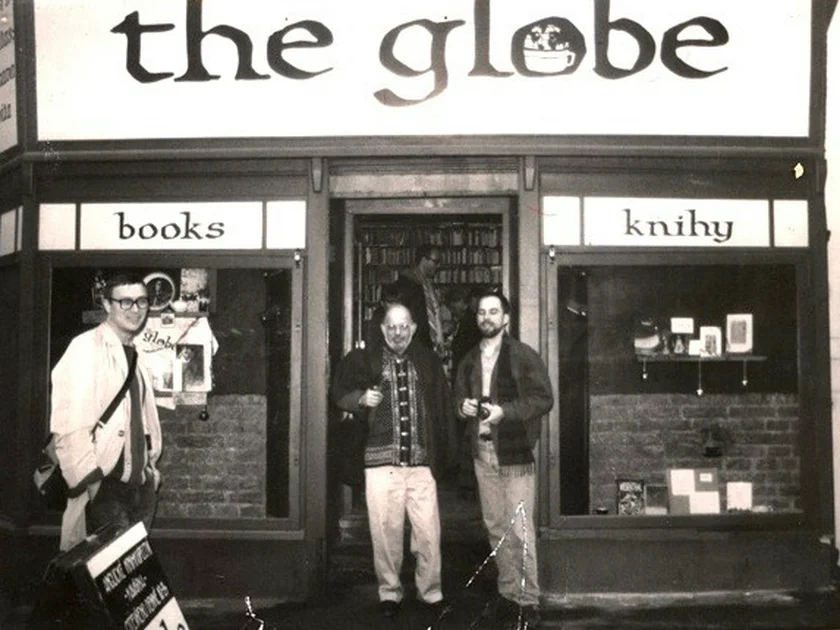
On a practical note, though, there weren’t many places where this reintegration could physically take place. We hosted lots of readings and cultural events that attracted both Czechs and foreigners — in fact, that was whole idea behind the business (and the reason we ended up calling it “The Globe”).
Whenever I think about the term 'expat' I think of Paris in the '20s and '30s and Prague in the '90s. What did it mean to be an expat in Prague then and now?
I used the word ‘expat’ freely in my book to describe a certain type of person who moves to a city/country of their own volition but never really fully integrates. Expats operate as a kind of island in their host country — and have many of their own institutions and characteristics. This certainly describes the generation of mainly younger foreigners who came to Prague in the early ‘90s.
It can be a bit of a pejorative term these days, I think.
The word has gotten caught up in the modern debate over privilege and has a mainly negative connotation these days, but I viewed the expat invasion of the early ‘90s as something mostly positive.
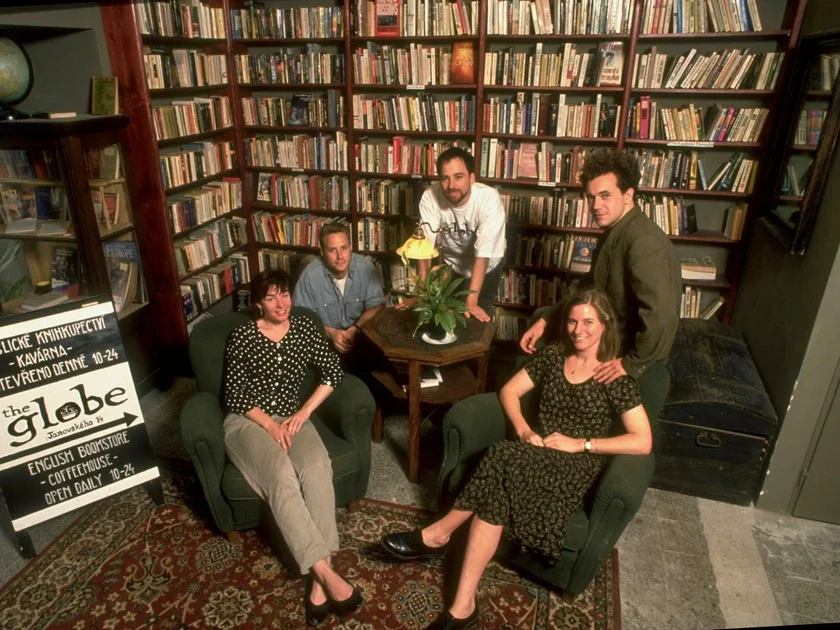
Which is interesting because until I read your book, I had no idea about the degree of social impact brought about by the influx of expat businesses.
It’s largely forgotten now, but the first couple of years were not that easy for newly liberated Czechoslovakia. There were lots of economic and transition worries, and then came the divisive parliamentary elections of June 1992 and the eventual split of the country.
Not long after that, though, the big wave of foreigners who moved to Prague helped to change the narrative. Suddenly, Prague and Czechoslovakia, and later the Czech Republic, was hip, cool, and at the center of the cultural zeitgeist. I don’t want to exaggerate the influence of the early expats, but the country continues to feed off this largely positive image in the form of increased tourism and international goodwill.
So much of what you cover from that era remains entirely relatable to today's expat. That "FOMO" you feel when you leave and this irresistible pull that Prague exerts on us all. What would you say to someone who's considering a move to Prague today?
It’s a tough call, but I would say it’s usually safest to “go back home” before it’s too late — like after a couple of years or so (the Prague homesickness will probably lessen over time). Very few expat wanderers who came here in the early ‘90s expected to stay the rest of their lives.
Something no one tells you when you first arrive is that the destination country will change over time (and won’t be the same place it was when you first got here and fell in love with it). The Czech Republic was already a “different” place by the early 2000s and it’s almost unrecognizable now from what it was in the early ‘90s.
How is the Prague of today different from what it was in the early '90s?
The biggest thing I miss from those days is the feeling of connectedness that I had with Prague. In more recent years, with all the thousands of visitors you see every day on the streets, it has been easy to lose that intimate feeling of living in a beautiful and special city like Prague. Prague had started to feel just like anywhere else.
It sounds funny, but I don’t think I could have written the book without the lockdown. It gave me days and weeks of solitude to think about those old times, to collect my old letters and photos and diary notations, and to write the book. The empty streets also helped, in a way, to re-create 1980s Prague in my mind. It was surprisingly easy to put myself back in, say, 1987 and imagine the city as it was back then.
How have your Czech readers responded to the book?
People here are very interested in how outsiders view them and their history, even if they don’t always agree with the author’s conclusions. The Velvet Revolution is three decades old and my impression is that local attitudes toward it are slowly changing. In the early years after 1989, Czechs seemed to play down the historic significance of the Velvet Revolution and the peaceful nature of the transfer of power.
I had Czech friends who, at first, even seemed slightly embarrassed by the term “revolution.” Now, people seem to be more justifiably proud of 1989. The students who carried out the revolution are themselves in their '50s and have adult children of their own. They’re in the process of passing their knowledge of what happened to generations to come.
For those who won't be able to read the book in Czech, what is your absolute favorite anecdote, something that encapsulates the era (or rather both eras) you write about?
One of the anecdotes I tell in the book is of crossing the Austrian-Czech border by train, in February 1990, just a couple of months after the changes. The border crossing looked very much the same (lonely, bleak, a little scary), the Czech border guards were still formal and a little gruff, but when the guard handed me back my passport, he gave me a smile and what looked like a salute. At that moment, I realized that we were all suddenly, once again, on the same side.
Read an English-language chapter from "Time of Change" at markbaker.com.












 Reading time: 11 minutes
Reading time: 11 minutes 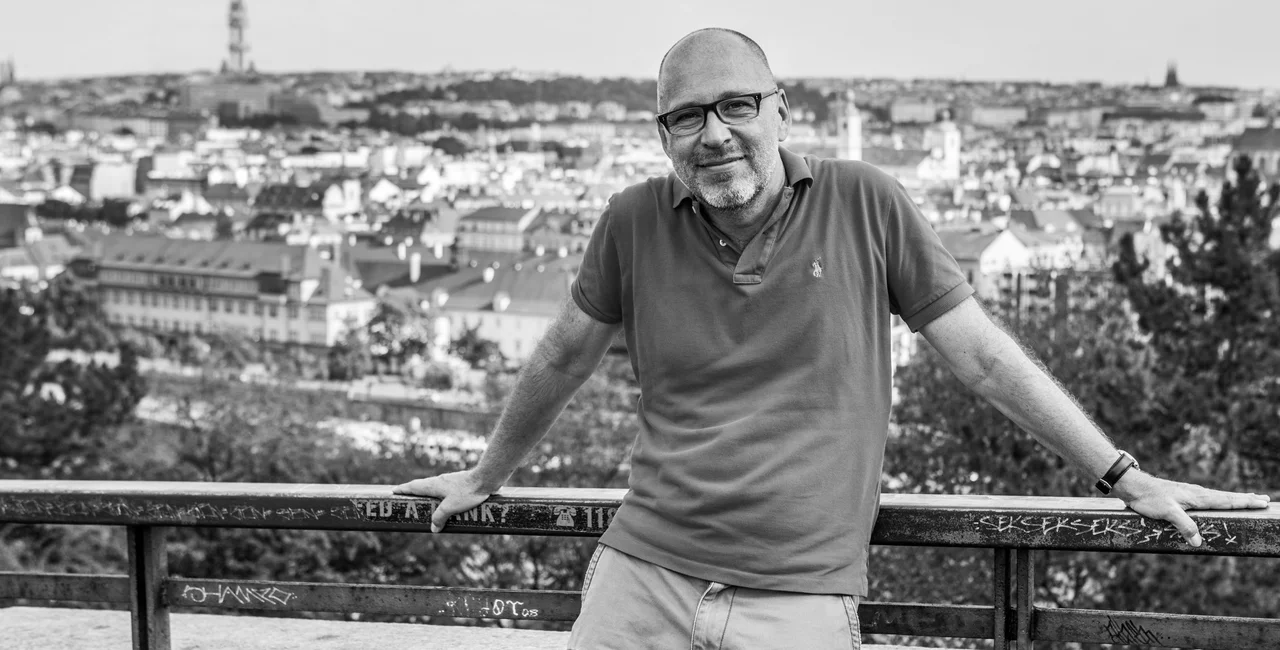


 Chinese
Chinese




